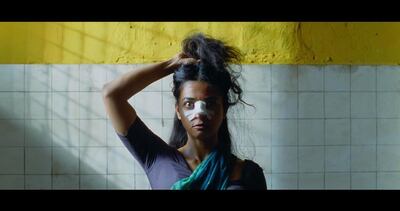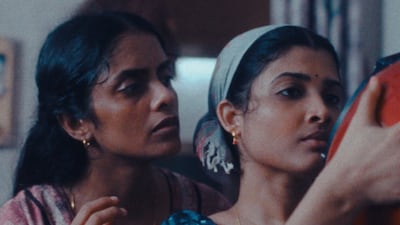The Hindi film industry, or Bollywood, is often used to reference India's movie-making prowess. But the country also has a thriving regional film industry that's churning out blockbusters in several languages, as evidenced last year by the Oscar-winning Telugu-language film RRR.
India also has a long and rich history of independent cinema. While often overshadowed by mainstream hits, new appreciation is growing thanks to accessibility offered by streaming services.
The Cannes Film Festival, which begins on Tuesday, is recognising this shift.
For the first time in 30 years, an Indian film will compete for the coveted Palme d'Or. Payal Kapadia's All We Imagine as Light is up against films by cinema great Francis Ford Coppola (Megalopolis), Palme d'Or veteran David Cronenberg (The Shrouds) and Oscar nominee Yorgos Lanthimos (Kinds of Kindness), among others.
The Malayalam-language film follows two nurses in Mumbai who, troubled by their relationships, decide to take a road trip to a beach town where they find a space to manifest all their dreams.
Kapadia is no stranger to the Cannes Film Festival. In 2021, A Night of Knowing Nothing, an exploration of university life in India, won the Best Documentary in the Director’s Fortnight, a festival sidebar. This was preceded by Afternoon Clouds, her slice-of-life short film set in Mumbai, which was the only film from India screened at Cannes in 2017.
Only one Indian film has won the Palme d'Or before, in 1946. Chetan Anand's Neecha Nagar, which explored the gulf between the rich and the poor, was an adaptation of Maxim Gorky's 1902 play The Lower Depths.
Another Indian film of note at Cannes this year is Santosh, which will compete in the Un Certain Regard section. It is among 20 films from around the world, selected for their unusual styles and non-traditional stories.
The feature debut of British-Indian filmmaker Sandhya Suri, Santosh is set in rural north India and follows a newly widowed woman who inherits her husband's police constable job under a government scheme. Despite her inexperience, she's pulled into an investigation when a lower-caste girl is found raped and murdered.
Celebrated Indian cinematographer and director Santosh Sivan will also be honoured with the Pierre Angenieux prize this year. Named after the French inventor of the modern zoom lenses, the annual prize recognises top directors of photography each year.
Considered one of India's finest cinematographers, Sivan, who began his career in Kerala, has also directed many acclaimed films, including Halo (1996), The Terrorist (1998) and Parambha (2007). A founding member of the Indian Society of Cinematographers, Sivan is the first Indian to receive the Pierre Angenieux prize, and will also host a masterclass at Cannes.
"Marked by tireless passion and exceptional talent, Santosh Sivan’s journey stands as a testament to the power of artistic vision," lensmaker Angenieux said when announcing this year's recipient. "His work has influenced countless filmmakers and captivated audiences, making him an unforgettable icon in the annals of cinema worldwide."
At the Directors' Fortnight section, attendees can also catch Sister Midnight, the feature debut of Karan Kandhari, starring acclaimed actress Radhika Apte.
In the dark comedy, Apte plays Uma, a small-town misfit who's trying to settle down in her new life after an arranged marriage.
“I hope people get to see this strange film to witness the wonder that is Radhika Apte. For me, she’s the closest thing to Buster Keaton or Toshiro Mifune reborn,” Kandhari told Deadline last week.

There's also Maisam Ali's In Retreat, screening at Acid or Association for the Diffusion of Independent Cinema, a space dedicated to independent cinema.
Set in the picturesque Ladakh in north India, it tells the story of a middle-aged man trying to return home to a mountain town for his brother’s funeral.
“I didn’t know the director was young, because when you see the film, it’s incredibly deep, really mature,” Pamela Varela, one of Acid’s programmers told the New York Times. “This is really a film by someone. You see it from the first sequence, which is amazing.”
The Cannes Film Festival runs until May 25

